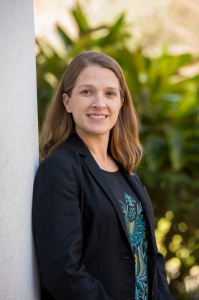
◊ by Dr. Sarah L. McKune
Thank you for running Nicolas Kristof’s piece, The World’s Malnourished Kids Don’t Need a $295 Burger. The title and opinion piece bring much needed attention to the issue of stunting—a major driver of child morbidity and mortality globally—and it creates an opportunity for dialogue about a bias persistent in both popular and published science today. Current narratives around meat consumption are overly focused on the experience of the privileged—not necessarily those buying a $300 burger, but certainly the experience of people living in high income countries. Overconsumption of meat plagues many Americans and may be a driver of poor health outcomes; but for the nearly 800 million people living on less than $2 a day globally, many of whom involuntarily consume a plant-based diet, an increase in meat consumption could be life changing.

As Kristof points out, 155 million children under-five suffer from chronic malnutrition. What he didn’t go on to say was that animal-source foods are the best available sources of high quality, nutrient-dense foods for children under two. A child’s stomach is roughly the size of his/her fist, thus nutrient density and bioavailability is critical in order to reach minimum dietary requirements for full growth and development. Given that over three-quarters of stunting occurs by the time a child is two years of age, infants and young children are an essential target population if global rates of stunting are to be addressed. Animal-source foods have been shown to improve growth and cognitive function and contain nutrients not available in plant based diets, such as B12. It is critical that their availability, accessibility, and affordability be improved for these most vulnerable populations.
Unfortunately, current dialogue around climate change has skewed public narrative toward less meat, vegetarianism, and plant-based diets, without considering the reality of the world’s poorest populations or the potential impact that such dialogue may have on their access to animal-source foods. The health of the planet and our collective survival through climate change should not be a privilege of the privileged. As we navigate the protection of planetary boundaries and renegotiate our roles and responsibilities to the natural world, we must simultaneously consider the needs of the world’s poorest and most vulnerable.
∼∼∼∼∼∼∼∼∼
 About the author: Dr. Sarah L. McKune is an Assistant Professor in the Department of Environmental and Global Health and the Center for African Studies at the University of Florida. For the past 15 years she has worked with global health development programs, largely in the West African Sahel, but also in Nepal, Haiti, Uganda, and Ethiopia. She holds a B.A. in French and Sociology, a Master’s in Public Health, a Ph.D. in Interdisciplinary Ecology, and was a Post-Doctoral Fellow for the CGIAR’s research program on Climate Change, Agriculture, and Food Security (CCAFS). She served as the Director of Public Health Programs for the College of Public Health and Health Professions from 2013-2016 before joining the department of Environmental and Global Health. She currently serves as the Human Health and Nutrition Cross Cutting Theme leader for the Feed the Future Innovation Lab for Livestock Systems. Dr. McKune’s research seeks to explain the complex, household dynamics that affect child growth and nutritional outcomes, including behavior, women’s empowerment and gender dynamics, climate change, hygiene and sanitation, and livestock ownership.
About the author: Dr. Sarah L. McKune is an Assistant Professor in the Department of Environmental and Global Health and the Center for African Studies at the University of Florida. For the past 15 years she has worked with global health development programs, largely in the West African Sahel, but also in Nepal, Haiti, Uganda, and Ethiopia. She holds a B.A. in French and Sociology, a Master’s in Public Health, a Ph.D. in Interdisciplinary Ecology, and was a Post-Doctoral Fellow for the CGIAR’s research program on Climate Change, Agriculture, and Food Security (CCAFS). She served as the Director of Public Health Programs for the College of Public Health and Health Professions from 2013-2016 before joining the department of Environmental and Global Health. She currently serves as the Human Health and Nutrition Cross Cutting Theme leader for the Feed the Future Innovation Lab for Livestock Systems. Dr. McKune’s research seeks to explain the complex, household dynamics that affect child growth and nutritional outcomes, including behavior, women’s empowerment and gender dynamics, climate change, hygiene and sanitation, and livestock ownership.
 0
0
